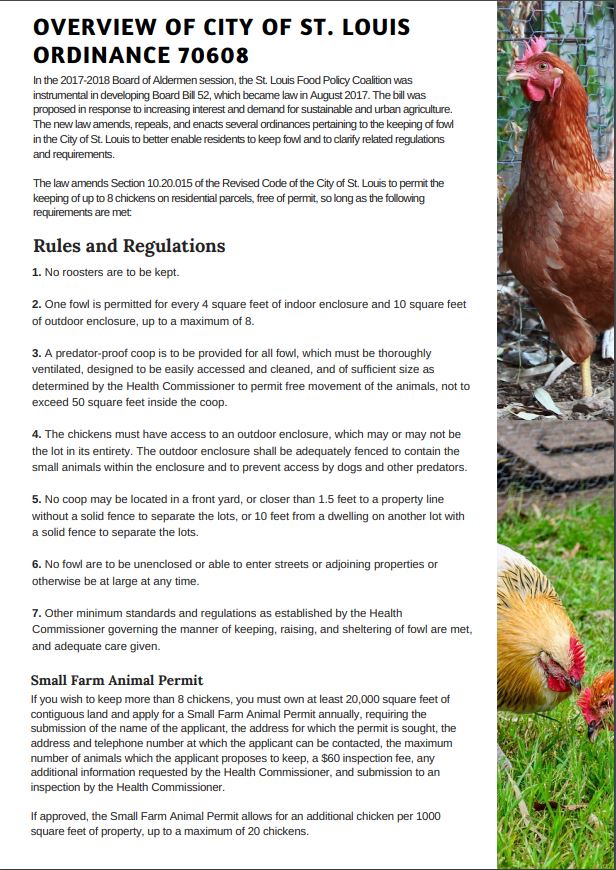Understanding City Laws for Backyard Chickens
Keeping backyard chickens has become a popular trend in many urban areas, as people seek to become more self-sufficient and sustainable. However, before diving into the world of urban chicken keeping, it’s important to understand the city laws and regulations that govern the practice. Each city has its own set of rules regarding backyard chickens, so it’s crucial to do your research before bringing home a flock of feathered friends.
One of the most common regulations that cities impose on backyard chickens is the number of birds that can be kept on a property. This is often determined by the size of the lot and the distance the coop must be from neighboring properties. For example, in some cities, residents may be limited to keeping just a small number of chickens, while others may allow for larger flocks with proper permits.

Another important aspect of city laws for backyard chickens is the type of housing that is required for the birds. Many cities have specific guidelines for the construction of chicken coops, including requirements for size, ventilation, and predator-proofing. Some cities may also require that coops be located a certain distance from property lines or residences to minimize noise and odor concerns.
In addition to regulations regarding the number and housing of backyard chickens, many cities also have rules in place regarding the care and maintenance of the birds. This may include requirements for providing proper food, water, and shelter for the chickens, as well as guidelines for disposing of waste and managing odors. Some cities may also require regular inspections of chicken coops to ensure compliance with local regulations.
Common City Laws for Backyard Chickens

While city laws regarding backyard chickens can vary widely from one location to another, there are some common regulations that are often found in urban areas. One of the most common requirements is that residents obtain a permit or license to keep chickens on their property. This may involve paying a fee and submitting an application that outlines the number of chickens being kept, the location of their coop, and other relevant information.
Many cities also have regulations in place regarding the noise that chickens can create. Roosters, in particular, are known for their loud crowing, which can be disruptive to neighbors. As a result, some cities may prohibit the keeping of roosters altogether, while others may require that they be kept a certain distance from neighboring properties or only allowed in certain zoning districts.

In addition to noise regulations, many cities also have rules regarding the disposal of chicken waste. This may include requirements for proper composting of manure, as well as restrictions on where waste can be disposed of on the property. Some cities may also have guidelines for managing odors and pests associated with chicken keeping, such as requiring regular cleaning of coops and proper storage of feed.
Enforcement of City Laws for Backyard Chickens
Enforcing city laws for backyard chickens can be a challenging task for local governments, as it often requires balancing the rights of property owners with the concerns of neighbors and the community as a whole. In many cases, enforcement of these laws falls to local animal control agencies or code enforcement officers, who may respond to complaints from residents or conduct routine inspections of properties with chickens.
When violations of city laws for backyard chickens are identified, property owners are typically given a certain amount of time to come into compliance with the regulations. This may involve making changes to the chicken coop, reducing the number of birds being kept, or addressing other issues that are in violation of the law. Failure to comply with city regulations can result in fines, citations, or even the removal of the chickens from the property.
It’s important for residents who are considering keeping backyard chickens to familiarize themselves with their city’s laws and regulations before bringing home a flock. By understanding and following these rules, chicken keepers can help ensure that they are in compliance with local laws and can enjoy the benefits of urban chicken keeping without running afoul of the authorities.
Conclusion
In conclusion, city laws for backyard chickens play a crucial role in regulating the practice of urban chicken keeping and ensuring that residents can enjoy the benefits of raising chickens while mitigating potential concerns for neighbors and the community. By understanding and following these laws, chicken keepers can help create a harmonious environment where both humans and hens can coexist peacefully. Before embarking on the journey of backyard chicken keeping, be sure to research and comply with your city’s regulations to avoid any legal issues down the line. Happy chicken keeping!
